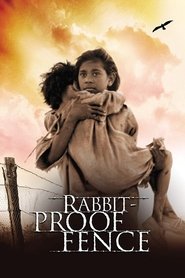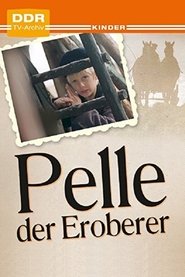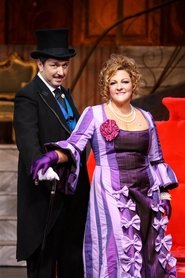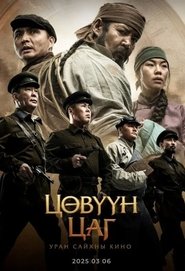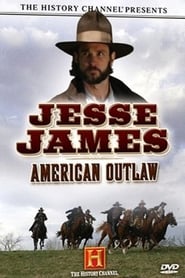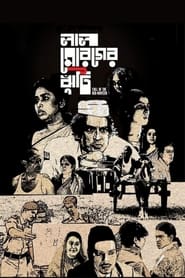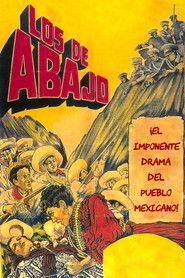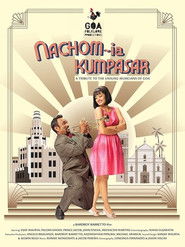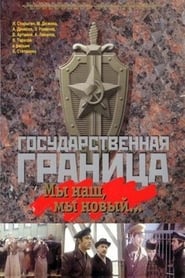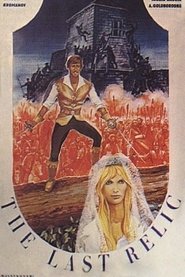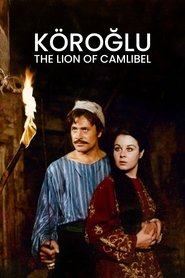Popular History Movies on Pantaflix - Page 353
-
Rabbit-Proof Fence
2002
Rabbit-Proof Fence
2002
star 7In 1931, three Aboriginal girls escape after being plucked from their homes to be trained as domestic staff, and set off on a trek across the Outback. -
Band of Rebels
2022
Band of Rebels
2022
A group of confederate soldiers uses their unique set of skills to travel behind enemy lines to take on deadly missions which reign havoc on the Union army. -
Rising Free
2019
Rising Free
2019
star 4.7Amidst the rugged Oregon territory, Rising Free is a visual masterpiece that showcases the harrowing journey of a young woman running from the throes of prejudice. Taken in by a gracious pioneer family, she learns to stand in newfound hope but is soon tested by unforeseen tragedies. In a vast and unforgiving wilderness, she must embrace this foreign hope within or surrender to shadows of darkness that loom over her. -
Industrial Revolution
2014
star 5The Ave Valley is, for more than a century, a territory seized by an imposing industry. Amongst ruins and operating factories, we descend the river on a journey alongside the banks of the present, unveiling the marks of the past. -
Pelle the Conqueror
1986
Pelle the Conqueror
1986
star 3From Martin Anderson Nexo's novel comes this loved story of a Swedish boy and his elderly father trying to make a better life for themselves in Denmark. A bleak future quickly becomes apparent when the two find employment on a farm full of misery. -
Fleas in the ears
2015
Fleas in the ears
2015
In Belle Époque Paris, Gabrielle, after years of family happiness, begins to doubt the loyalty of her husband, Victor-Emmanuel, and confides her concerns to her old friend Lucien. The comedy begins to unfold when Gabrielle and Lucien, in order to test Victor, write him a letter, arranging an appointment at a dubious hotel. What they do not know is that the usually drunk Posse, Victor's double, works as a doorman at the same hotel. When all the heroes of the play arrive at the hotel, each for their own reasons, the fuse of the farce is ignited... -
Girl for a Day
2024
Girl for a Day
2024
star 718th century. Anne, grown up, has to "change her clothes" because of her attraction to women. Now a man, he marries and has a great love affair with his new wife, until his past catches up with him. The shocking true story of Anne Grandjean, born intersex, and their resounding trial, which still questions all our certainties today. -
Time of Hurtle
2025
Time of Hurtle
2025
star 8In 1911, Bogd Khan, with the help of his trusted spy Natsag, declares Mongolia’s independence. However, by 1928, the rise of the Comintern introduces a new threat. Under the guise of eliminating Baruuntan influence, the Comintern forces its control over Mongolia, shutting down religious monasteries and seizing private property. Riots erupt, forcing many to flee as the country descends into chaos. Natsag’s family, once secure, is swept into this storm, facing a personal and political unraveling as Mongolia enters its dark time. -
Jesse James: American Outlaw
2007
Documentary exploring the history of one of America's most notorious outlaws. -
Call of the Red Rooster
2021
The story of freedom-loving people dreaming of an independent Bangladesh. -
The Romance of Lady Hamilton
1919
An aged ambassador's wife loves an admiral but is rejected by society after his death. -
The People vs. Fritz Bauer
2015
star 6.8It is the late 1950s. Flourishing under the economic miracle, Germany grows increasingly apathetic about confronting the horrors of its recent past. Nevertheless, Fritz Bauer doggedly devotes his energies to bringing the Third Reich to justice. One day Bauer receives a letter from Argentina, written by a man who is certain that his daughter is dating the son of Adolph Eichmann. Excited by the promising lead, and mistrustful of a corrupt judiciary system where Nazis still lurk, Bauer journeys to Jerusalem to seek alliance with Mossad, the Israeli secret service. To do so is treason — yet committing treason is the only way Bauer can serve his country. -
The Underdogs
1940
The Underdogs
1940
star 5.7During the Mexican Revolution, the people tired of living in poverty and enduring the atrocities committed by the federals, decide to follow one of their own, General Demetrio Macias, a thief with tricks he learned in jail and who along with "La Pintada" decides to take his people to victory. Led by Captain Anastacio Montañez, the newly formed army fight and honor their code at the same time as they loot houses to spread the wealth. -
Ehon Taikōki - Amagasaki Kankyo
0000
The play "Ehon Taikōki" was originally written for the puppet theater (Bunraku) and staged for the first time in 1799 in Ōsaka at the Toyotakeza. It was adapted for Kabuki the next year by Nagawa Tokusuke I. The play consisted originally of thirteen acts, one act for each day that passed between Akechi Mitsuhide's murder of Oda Nobunaga and his death at the hand of Toyotomi Hideyoshi. The tenth act is the only one which has survived. This act tells of an incident during the battle in which Mitsuhide was finally defeated. -
Let's Dance To The Rhythm
2014
The bitter sweet relationship between a young singer and her musician mentor set against the backdrop of the jazz clubs of Mumbai and the musicians from Goa during the 60s. In the 1960s Lawrence Vaz a young Goan musician playing in the nightclubs of Mumbai, returns to Goa to find a singer for his band. He meets a promising young singer Dona Pereira and convinces her parents to let her sing in his band. While Lawry moulds the impressionable young Dona into a talented singer, they fall deeply in love. The romance between musician and singer turns into a bitter battle for love and acceptance. Based on actual events this quasi-biographical film is a tribute to a great Goan , yet barely acknowledged, legacy. Musicians who once upon a time set the jazz clubs of Mumbai on fire and actually shaped the music of Bollywood cinem -
State Border: Vol. 1. We are Ours, We are New...
1980
star 6.2A former officer of the Separate Border Guard Corps accepts an offer to head the customs service of the young Soviet state. -
The Last Relic
1970
The Last Relic
1970
star 6.3A medieval love story with lots of adventures. The times are troubled - there's a revolt of peasants going on. To secure its safety a monastery chases for a relics of a holy Brigitte. A nobleman promises to get it if he gets beautiful Agnes as a reward. But she fells in love with a handsome adventurer. The monastery has to act shrewd now and play double game. The movie is still the best achievement of the Estonian cinema. Based on a novel. -
Köroğlu
1968
Köroğlu
1968
star 6.9The epic tells about the life and heroic deeds of Koroghlu (literally "son of the blind man") as a hero of the people who struggled against unjust rulers, defending his clan or tribe. -
A Abóbada
2021
A Abóbada
2021
star 5An adaptation of the story with the same name by Portuguese writer Alexandre Herculano.
 Netflix
Netflix
 Amazon Prime Video
Amazon Prime Video
 Apple iTunes
Apple iTunes
 Apple TV Plus
Apple TV Plus
 Disney Plus
Disney Plus
 Google Play Movies
Google Play Movies
 Paramount Plus
Paramount Plus
 Hulu
Hulu
 HBO Max
HBO Max
 YouTube
YouTube
 fuboTV
fuboTV
 Peacock
Peacock
 Peacock Premium
Peacock Premium
 Amazon Video
Amazon Video
 The Roku Channel
The Roku Channel
 AMC+
AMC+
 Kocowa
Kocowa
 Hoopla
Hoopla
 The CW
The CW
 Vudu
Vudu
 Starz
Starz
 Showtime
Showtime
 PBS
PBS
 Pantaflix
Pantaflix
 FXNow
FXNow
 Tubi TV
Tubi TV
 Kanopy
Kanopy
 Comedy Central
Comedy Central
 Crunchyroll
Crunchyroll
 Microsoft Store
Microsoft Store
 Redbox
Redbox
 Sun Nxt
Sun Nxt
 ABC
ABC
 DIRECTV
DIRECTV
 Crackle
Crackle
 Fandor
Fandor
 Plex
Plex
